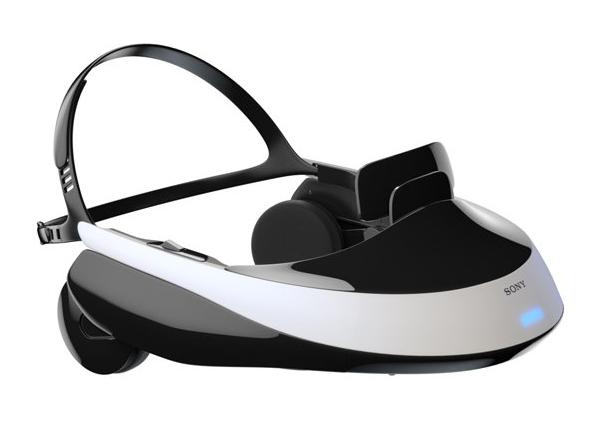Why you can trust TechRadar
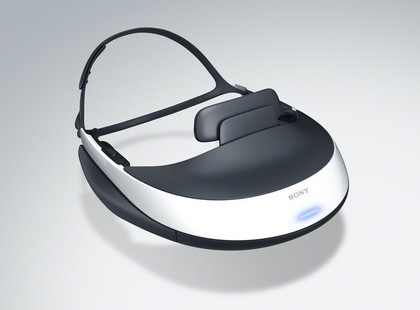
There's something just a little bit unsettling about a total immersion 3D system such as the Sony HMZ-T1. With your head in a virtual cinema and a sound system that isolates you from the world around, the experience is just a little unnerving. But it says much for the quality of the 3D viewer's display that this happens.
Pictured delivered by the tiny OLED panels are wonderfully sharp and colourful. Sony equates the resolution to 720p, although we suspect this is more subjective than mathematical. That said, the illusion of a large screen is surprisingly convincing, and there's genuine hi-definition clarity to be had.
For a truly cinematic sensation, we found 2.35:1 framed Blu-rays worked best. Actually, in some ways the viewing experience is better than at the cinema. These days you're rarely allowed to watch movies in a dark theatre (probably due to health and safety rules), but within the confines of the Sony HMZ-T1, films play in perfect darkness. That means images are extremely dynamic, with deep solid blacks and dazzling peak whites.
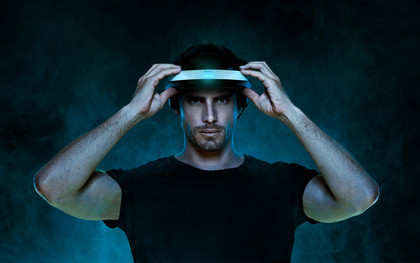
The 3D experience offered by this headset is rather different to other display technologies. Stereoscopic images don't have to be filtered by an additional lens, be it polarising or actively shuttered. That means there's no difference in overall brightness between a regular 2D HD movie and a 3D one.
This is a transformational difference. Consequently, there's no detail lost during the Green Hornet's night-time escapades and the vivid colour palette of Cloudy with a Chance of Meatballs is mercifully undimmed.
Even better, because the refresh rate of OLED is lightning-fast (just 0.01 milliseconds), there's no overlap between left and right image frames. Suddenly that old 3D bugbear of crosstalk double imaging has been put to bed. Even difficult 3D source material such as Monsters vs Aliens appears clean and deep.
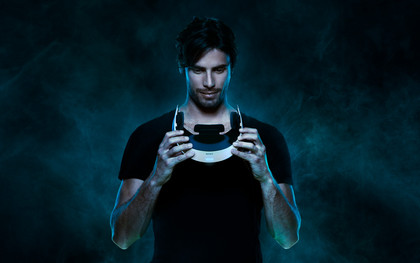
Sony has done a similarly fine job with the HMZ-T1 personal 3D viewer's sound system. Even though the built-in headphones use conventional stereo drivers, the surround processing that feeds them is extremely effective. Sony calls the process 'virtual phones technology.'
Sign up for breaking news, reviews, opinion, top tech deals, and more.
There's a choice of four surround presets available: Cinema, Game, Music and Standard. Each offers slightly different virtual staging. We found Music to be particularly effective with live concert material.
There are caveats, though. The balance of the headset isn't a design strong point, which is unsurprising given the size of the forward-facing optical block that houses the two 0.7-inch OLED panels.
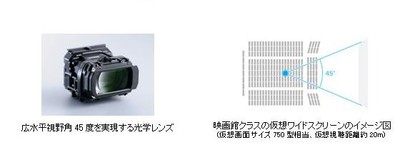
When watching a movie you really have to recline back, to make the HMZ-T1's 350g sit on your face rather than hang off your nose. And we're not sure we'd want to wear them for more than a couple of hours in one stretch.
The headset isn't particularly suitable for gaming either, unless you're completely adept at using a console controller in the dark. Unable to see exactly where our fingers and thumbs were made us even more cack-handed gamers than usual.
We also found ourselves becoming slightly paranoid the longer we wore them - a consequence of the isolating effect of the design.
Verdict
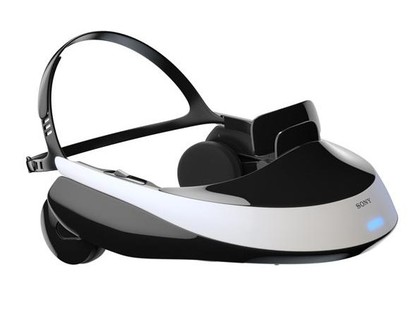
While we really can't imagine head mounted 3D displays taking off in quite the same way that Walkmans did a generation ago, we rather like Sony's HMZ-T1 personal 3D viewer.
It's a bold and exciting spin on a familiar concept, and one that actually delivers on its promise of a virtual cinema experience. Its 3D performance is particularly mesmerising. If we could see our thumbs, we think they'd both be pointing upwards.

Steve has been writing about AV and home cinema since the dawn of time, or more accurately, since the glory days of VHS and Betamax. He has strong opinions on the latest TV technology, Hi-Fi and Blu-ray/media players, and likes nothing better than to crank up his ludicrously powerful home theatre system to binge-watch TV shows.
